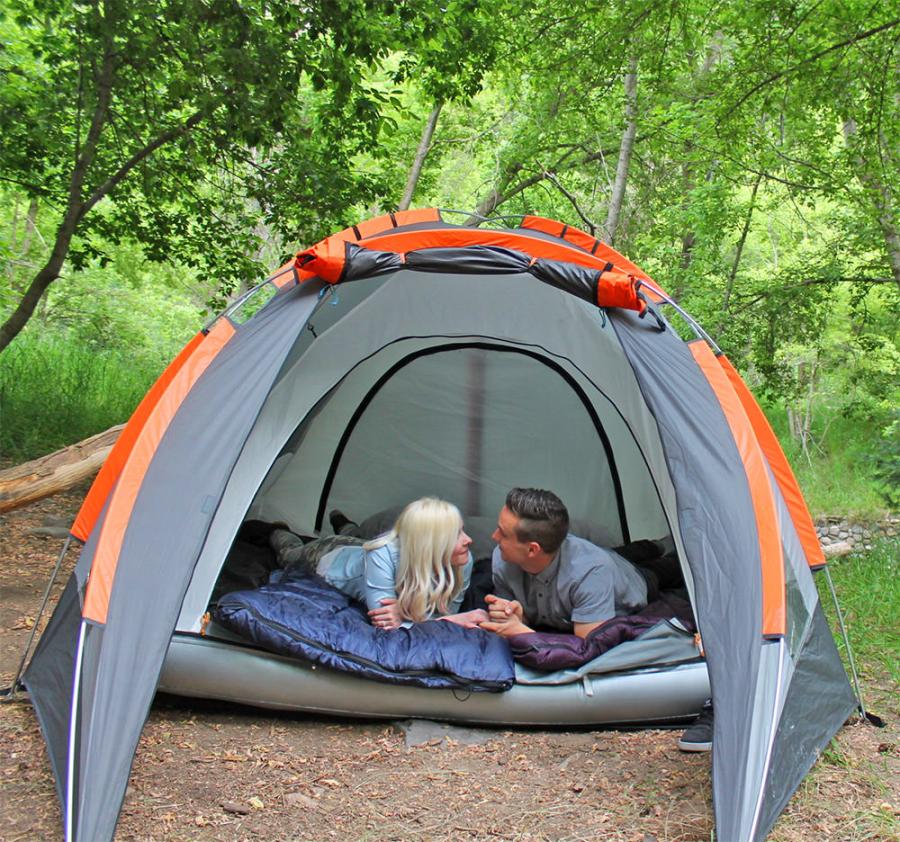Sheltering Adventures: Embracing the Significance of Quality Camping Tents
When it comes to embarking on outdoor adventures, having the right camping tent can truly make or break your experience. Whether you're a seasoned outdoor enthusiast or a newbie camper, the significance of a quality camping tent cannot be overstated. It serves as your home away from home, providing shelter, safety, and comfort amidst the vast wilderness. Camping tents, in essence, are the backbone of any successful outdoor excursion, offering protection from the elements and a cozy haven to unwind after a day of exploration. As you pitch your tent under the starry sky, the sense of security and peace it brings is unparalleled, allowing you to fully immerse yourself in the beauty of nature. So, let's delve into the world of camping tents and uncover why they are an essential companion for every outdoor enthusiast.
Choosing the Right Tent
When selecting a camping tent, it is vital to consider the size and capacity that meets your needs. A tent too small leaves you cramped and uncomfortable, while one too large can be cumbersome to set up and transport. Be sure to choose a tent that accommodates the number of people intended for the trip.
Additionally, the season and weather conditions of your camping destination play a crucial role in determining the type of tent to select. A three-season tent is suitable for most camping trips as it provides protection against rain and wind. For more extreme conditions, such as winter camping or harsh weather, a four-season tent is recommended to ensure safety and comfort.
Durability is another essential factor when choosing a camping tent. Look for sturdy materials, such as ripstop nylon or polyester, that can withstand wear and tear. Reinforced seams and quality zippers contribute to the overall longevity of the tent, ensuring it will endure various outdoor adventures.
Setting Up Your Tent
Before embarking on your camping trip, it is crucial to carefully choose the right spot for pitching your tent. Look for a level area clear of rocks, branches, and other sharp objects that could damage the tent floor. Once you have found the ideal location, lay out the tent body and secure it with stakes to prevent it from shifting in the wind.
Next, assemble the tent poles following the manufacturer's instructions. Most modern camping tents are designed for easy setup, with color-coded poles and sleeves that simplify the process. Insert the poles into the corresponding sleeves or clips, ensuring that they are securely in place. Gently lift the tent body to create the basic structure, being careful not to force the poles beyond their intended limits.
With the tent framework in place, attach the rainfly to provide protection against the elements. The rainfly should be secured snugly over the tent body, leaving no gaps for rain or wind to penetrate. Check that all seams are properly sealed and ensure that the tent is taut to increase its stability in adverse weather conditions.
Maintaining and Storing Your Tent
To ensure the longevity of your camping tent, proper maintenance and storage are essential. After https://dwights.co.nz/collections/tents , take the time to clean your tent thoroughly. Gently wipe away any dirt or debris using a soft cloth and mild soap. Allow your tent to air dry completely before packing it away to prevent mold or mildew growth.
Inspect your tent regularly for any signs of wear and tear, such as fraying seams or small holes. Repair these issues promptly using a tent repair kit to prevent them from worsening. Proper maintenance will help extend the lifespan of your tent and ensure that it remains a reliable shelter for your outdoor adventures.

When storing your tent, make sure it is completely dry to prevent mold and mildew. Store it loosely in a cool, dry place away from direct sunlight. Avoid storing your tent in a compressed state for extended periods, as this can damage the fabric and coatings. By taking these simple steps, you can enjoy your camping tent for years to come.